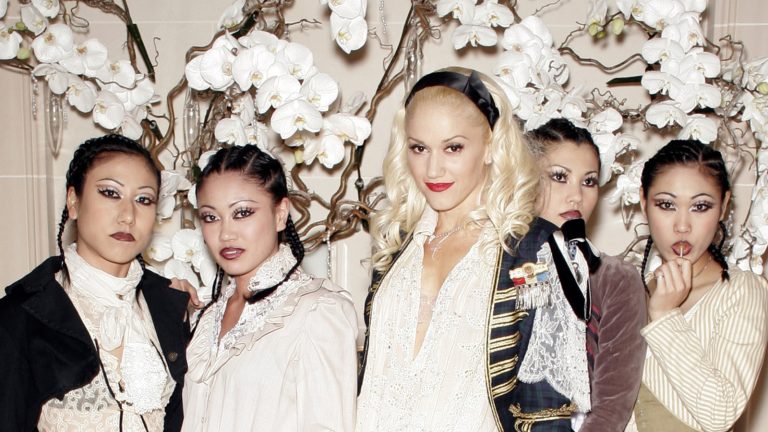Book Appointment Now
Lolita by Vladimir Nabokov
Published in 1955, “Lolita” by Vladimir Nabokov is one of the most controversial books ever written. Although written in English, it was first published in Paris for fear that it would be banned.
Written in the first-person by a recently deceased Humbert Humbert, the story is about his obsession with 12-year-old Dolores Haze, whom he refers to as Lolita. Humbert Humbert comes into contact with Lolita after renting a room in the house that belongs to her mother, Charlotte Haze, whom he eventually marries. When Charlotte is hit by a car and killed, Humbert Humbert inadvertently becomes Dolores’s stepfather. Not only does a sexual relationship evolve, but there are scenes in which Humbert Humbert sexually assaults Dolores.
From the outside, the plot is enough to make anyone squirm. However, if you read the book, you’ll see it’s not only a work of art, but one that is satirically and tongue-in-cheek. Nabokov is in no way condoning such behavior, but explicating the story of a very sick, dark man. In a 1967 interview with The Paris Review, Nabokov made it clear that he and Humbert Humbert were not the same. “It is not my sense of the immorality of the Humbert Humbert–Lolita relationship that is strong; it is Humbert’s sense,” Nabokov told the magazine. “He cares, I do not. I do not give a damn for public morals, in America or elsewhere.” It’s also one of Lana Del Rey’s favorite books.
The Color Purple by Alice Walker
Although it’s been made into a movie and musical, “The Color Purple” by Alice Walker was immediately frowned upon when it was published in 1982. Centered around Celie, a Black woman living in Jim Crow-era Georgia and married to a man she calls “Mister,” the story is infused with themes that have led to it being banned in some places. Desperate in her situation, Celie writes letters to God while waiting for letters from her sister Nettie, who was forced to leave the home when Celie’s husband tried to rape her. Other characters come into the story, including Shug Avery, with whom Celie falls in love.
“The Color Purple” isn’t an easy read, but a necessary one. It’s rife with sexual violence, misogyny, and racism. According to the American Library Association, “The Color Purple” has been on their list of the Top 100 Most Frequently Challenged books for decades, and continues to hold that spot. In 1983, Walker talked to NPR about her novel and what the takeaway should be. “I think that the book really accurately reflects what is happening in the world today and what has always happened in the world today,” Walker said. “In fact, women are dominated by men. I think that many men will read it and rejoice … I think only very, you know, rather easily threatened people will be turned off by the men in this book.” It’s also one of Hillary Clinton’s favorite books.
The Satanic Verses by Salman Rushdie
Although recognizable now, when “The Satanic Verses” was published in 1988, Salman Rushdie was fairly unknown. Rushdie, who is the master of magical realism, centered the plot of his novel around two Indian actors, Gibreel Farishta and Saladin Chamcha, who survive a terrorist attack on a plane while everyone else dies. Although they both survive, their lives are forever changed, with Farishta becoming an angel while Chamcha begins to resemble the devil. Rushdie uses magic and dream sequences to move his plot along, relying heavily on imagery found in Islam and going so far as to kill Mahound — representing Muhammad — in one of the dreams.
While some books are simply banned, in Rushdie’s case, the Ayatollah Ruhollah Khomeini, the leader of Iran in 1989, issued a fatwa on Rushdie and his publishers, which called for the death of everyone involved in bringing “The Satanic Verses” to life. Although Rushdie was able to hide living under the name Joseph Anton, which would eventually result in an autobiography, several others were either killed or survived assassination attempts due to their involvement with the book. As recently as August 2022, a man tried to kill Rushdie and succeeded in blinding him in one eye. The attacker was sentenced to 25 years in prison in May 2025.
There are plenty of reasons to read “The Satanic Verses.” But ultimately, you should read it because you can.
Beloved by Toni Morrison
Similar to “The Color Purple,” Toni Morrison’s “Beloved” is another tough read — but one that should also be mandatory, especially because Morrison was inspired by a real-life event. Published in 1987, the book is about Sethe, a former slave, and her daughter Denver, who are living in a haunted house in Ohio. It is assumed by both women that the haunting is Sethe’s first daughter, Beloved, whom she killed to prevent her from a life of slavery. At one point, a man from the plantation on which Sethe was a slave, Paul D, comes to visit the women and drives out the spirit. Not long afterward, a sickly woman appears at the house and Sethe believes that she is her daughter Beloved, now alive in human form. Sethe dotes on Beloved, giving her everything she wants out of guilt for what she did to her. As Beloved becomes more powerful and controlling, Sethe becomes a shadow of herself, until Beloved, like the spirit, is eventually cast out of the home.
“Beloved” is one of the most tragic classic books that’s not just about slavery, but its lasting psychological effects. There’s also a lot of sexual assault and memory of rape happening in “Beloved,” which was unfortunately all too common for enslaved people, thus isn’t easy to read. While trauma runs deep in this book, it’s ultimately about the relationship between a mother and her children, and the desperate sacrifices that mothers are sometimes forced to make.
American Psycho by Bret Easton Ellis
Even if you’ve seen the movie, you won’t understand “American Psycho” until you read the book. Written by Bret Easton Ellis and published in 1991, the story is told by Patrick Bateman. Bateman is a deeply insecure, superficial person whose worth is tied to materialistic items and what he believes others think of him — this is abundantly clear in the first couple of pages. Bateman is a shell of a human, exhibiting no emotions, lacking any empathy.
Although he is an extremely violent and unhinged character, going so far as to even dabble in cannibalism, he’s also a byproduct of his surroundings, specifically the capitalist structures that reduce people to commodities. As the story unfolds, Bateman becomes more and more unreliable in his narration, making the reader question not only if what they’re reading is true, but if Bateman himself is real or imaginary.
While a perfect social commentary on capitalism and its effects, like “Lolita,” some readers aren’t able to see beyond the words on the page, dismissing the book as both violent and sexist. It is, but not without reason. In 1991, author Fay Weldon said to The Guardian, “Bret Easton Ellis is a very, very good writer. He gets us to a T. And we can’t stand it. It’s our problem, not his. ‘American Psycho’ is a beautifully controlled, careful, important novel which revolves about its own nasty bits.” In other words, for some people, it hits too close to home.
The methodology behind this list
Honestly, trying to choose just five controversial books wasn’t easy. But the aim was to share stories that, perhaps, people haven’t ever considered reading. For example, thanks to the series on Hulu, “The Handmaid’s Tale,” by Margaret Atwood, has been given renewed attention in the last several years, as has “1984” by George Orwell (since we’re basically living in an Orwellian nightmare). So these books, although very controversial, didn’t necessarily need to be highlighted in the way that the books on this list did.
While the complete list of controversial books goes well into the hundreds, if not thousands, the point is not to let controversy stand in the way of reading a certain book. Books are banned because they force readers to think, question, and come up with their own answers — all of which are things that politicians, leaders, and lawmakers fear. Although reading these books isn’t likely to leave you feeling cozy inside, that’s the point. Life doesn’t just produce happy endings, and if art is to reflect life, neither should every book ever published.
If you or anyone you know has been a victim of sexual assault, help is available. Visit the Rape, Abuse & Incest National Network website or contact RAINN’s National Helpline at 1-800-656-HOPE (4673).








